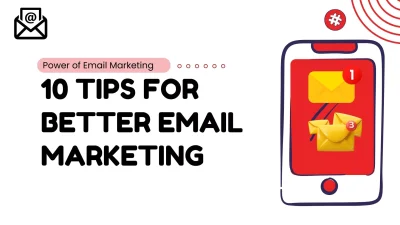You’ve likely heard of affiliate marketing, but do you understand what is affiliate marketing and how it really works? If you’re an aspiring online business owner or want to generate a stream of passive income, then following some simple-to-pay-attention-to affiliate marketing tips might be your chance of a lifetime. This guide will define what is affiliate marketing, how it works, and how you can get started taking advantage of it to grow a business or add an income stream.Between an overview of the nuts and bolts and true applications of affiliate marketing, this course will give you everything you need to determine if what is affiliate marketing is right for you.
What is Affiliate Marketing?
At its heart, affiliate marketing is a performance-based marketing strategy in which businesses reward affiliates for each customer, lead or sales generated as a result of the affiliates own marketing efforts. Affiliates share special tracking links that promote a product, and when the referred customer buys something, the affiliate gets paid. It’s a win-win for both companies and affiliates, which is why it’s so popular among both marketers and brands.
Here’s an example to show this in action:
An affiliate fitness blogger affiliates with a supplement brand. They sell protein powder on their blog through a special affiliate link. The blogger makes a commission every time someone clicks on the link and buys the powder.
Why the Popularity of Affiliate Marketing?
That’s because affiliate marketing has become a $17 billion industry, according to Statista’s 2023 figures. It has its upsides for both the business and affiliates, including:
-
Low Start-Up Cost: There’s no need to stock or produce the product. All it takes is a little imagination and a little talking.
-
The ability to earn passive income: Once set up, an affiliate marketing business can earn you commissions month after month for a small amount of maintenance effort.
-
Scalability: Companies can scale their affiliate programs in a way that hiring and training a traditional marketing team might not allow for.
-
Revenue Rewards: Payouts are based purely on performance, creating a low risk environment for brands.
And, for entrepreneurs, this model makes affiliate marketing even more appealing.
How Affiliate Marketing Works?
There are three roles in affiliate marketing:
-
The Merchant (Advertiser/Retailer) – The provider of the product or service being advertised.
-
The Affiliate (Publisher, Marketer) – The one who advertises the merchant’s product or service.
-
The Consumer – The end user that makes the purchase through an affiliate’s referral link.
Here’s what that process tends to look like:
-
Join an Affiliate Program: Companies and merchants who have the products or services that you have decide to start an affiliate program. This includes networks such as Amazon’s Associates, ShareASale and CJ.
-
Promote Product or Service: Content creators will promote the product or service using their blogs, social media, email marketing or on a YouTube channel. The posts always included a call-to-action and their special affiliate link.
-
Create Referrals: Each time a lead (consumer) clicks the affiliate link for a product or service and then makes a purchase or signs up for a free trial, the lead is tracked.
-
Collect Commissions: Once the results are confirmed, you will earn pending commission based on the program and its structure.
Different Types of Affiliate Commission Structures
Not all affiliate partnerships work the same. Here are some typical models you’ll find:
-
Pay-Per-Sale (PPS): How much an affiliate gets paid depends on the sale.
-
PPC (Pay-Per-Click): Affiliates are compensated for generating traffic to the advertiser, whether a sale is made or not.
-
Pay-Per-Lead (PPL): Affiliates get rewarded for sending desired actions like sign-ups, form submissions, or app downloads.
Fundamentals to Successful Affiliate Marketing
My okay that’s not quite the only thing you must have but you get my point if you want to be successful in affiliate marketing. Here’s how you can take action that helps to achieve the most impact:
Choose the Right Niche
Find a niche that you know a lot about and care about. Not only does this allow you to produce authentic, compelling content, it also speaks to a specific audience. No matter whether it’s beauty, food delivery, fitness, tech gadgets or financial services, niche focus is critical.
Partner with Reputable Brands
Only collaborate with the brands or products that fit your values and audience. Low-quality items will chip away at trust, while high-quality resources will add to your credibility.
Create High-Value Content
So people seek guidance, not sales pitches. Deliver high-quality, useful content such as “how-to” articles, real-world product reviews, and comparison articles. For example, if you’re in the tech niche, an article titled “Top 5 Laptops for Entrepreneurs” will be more helpful behind the “Shop now” than some spammy affiliate links.
Optimize for SEO
Good SEO practices are necessary for affiliate links in written content. Target those keywords (ex: “best fitness gadgets for beginners”) so that your blogs (or product reviews) appear at the top of the search engine, in return, expose your affiliate referral link to more clicks.
Promote in Multiple Places
It isn’t smart to depend on only one platform. Instead, combine blogging, Google ads, email marketing, social media campaigns to send traffic to your affiliate links. TikTok and Instagram are also blowing up as sources of product discovery, and are great channels for affiliate initiatives.
Build Trust with Transparency
Be explicit and open about affiliate links in your content. Most affiliate programs (and some laws, such as the FTC regulations in the US) want disclosures. Something as straightforward as, “This post includes affiliate links — that means I may receive a small commission at no cost to you,” develops goodwill with your readers.
Higher Paying Industries for Affiliate Marketing
The flexibility of affiliate marketing means that its principles can be applied to almost any industry. A few standouts include:
-
E-commerce: Fashion, as well as tech products, are usually leading product categories you’ll find in affiliate marketing campaigns.
-
Finance: With financial tools such as credit cards, loans and budgeting apps, affiliates can do a great job to encourage some to use them.
-
Health & Wellness: This is a profitable niche, including Supplements, workout programs, and mental health apps.
-
Travel: The travel industry benefits from affiliates promoting deals and experiences, from booking flights to hotel discounts.
Tools to Help You Start
You need the right tools to succeed. To take off some of that unnecessary burden, I’ve compiled a quick list for you to make your affiliate marketing journey that much easier to navigate:
-
Affiliate Networks (F* Amazon Associates, Rakuten):** Pairs affiliates with vendors.
-
Tracking Platforms (ClickMeter, Voluum): It tracks clicks, conversions and commissions in mean time.
-
Content Marketing Tools (Canva, Grammarly, Jasper): Elevate blogs and social programs.
-
Search Engine Optimization (SEO) Tools (Ahrefs, SEMrush): Enhanced visibility and keyword optimization.
Is Affiliate Marketing For You?
The other great thing about Affiliate Marketing is that it’s accessible. Whether you want to find high-value advertisers and vendors for your blog or just want a reliable source of affiliate revenue, an affiliate network is worth checking out.
Start small. Commit to learning. Measure your results and when to pivot. With hard work and strategy, the sky is the limit in making money and building valuable relationships.
Take Your First Step Today
Affiliate marketing is an amazing way to unlock passive income and make relationships that matter to you. “The devil is in the details, as in picking and choosing the right niches and providing value to the audience, all are critical to a strong execution,” they say.
If you’re rushing to get into affiliate marketing, why not take a look at some programs immediately? And don’t forget, each click has the capacity to spark an actual connection, which means the world gets smaller and your options expand.



